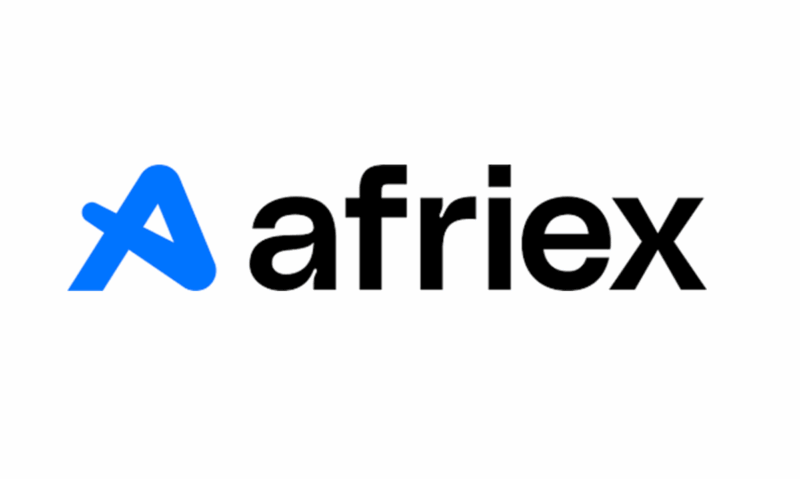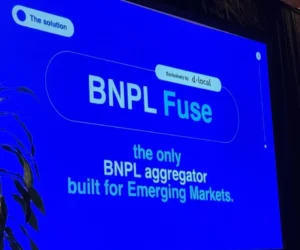In an increasingly interconnected world, where physical borders are diminishing in significance, the financial sector is undergoing a profound transformation.
This evolution is largely driven by the rise of financial technology, or Fintech, which is reshaping the very nature of banking and making global financial transactions more accessible and efficient than ever before.
Just as globalization has brought people closer, Fintech acts as its indispensable financial counterpart, enabling seamless money movement across continents.
Prime examples of this revolutionary shift are platforms like Afriex, Remitly, Payoneer, Revolut and a host of others at the forefront of facilitating these crucial cross-border financial flows, especially for the African diaspora.
Historically, cross-border payments were often cumbersome, expensive, and time-consuming. Traditional banking systems, while robust, were not designed for the instantaneous global commerce and personal connections that define our modern era.
Lengthy processing times, high transfer fees, and complex currency exchange mechanisms posed significant barriers for individuals and businesses operating internationally. However, Fintech innovations are dismantling these barriers, ushering in an age of truly borderless banking.
The core of this transformation lies in the ability of Fintech platforms to leverage digital infrastructure for direct, rapid, and often more affordable transactions.
These platforms bypass many of the legacy systems that historically slowed down international transfers, offering streamlined solutions that cater to the demands of a globalised economy.
This is particularly impactful for emerging markets and the African diaspora, where the need for efficient remittance services and international business payments is critical.
Consider a platform like Afriex, which has demonstrated remarkable growth in addressing these needs.
With over $10 billion in processed transactions since its inception, and serving more than 5 million users globally, Afriex exemplifies the power of Fintech in bridging geographical divides.
It offers features such as recurring payments and scheduled transfers, allowing users to manage international bills and subscriptions with unprecedented ease.
The introduction of global accounts that enable users to receive money in major currencies like USD or EUR, and then convert or send it in multiple other currencies, is another testament to this shift.
These innovations mean that individuals and businesses can receive international payments directly into their accounts, hold funds, make transfers, or withdraw money, all within a single application.
Afriex is becoming a major player in global fintech with a strategic cross-border expansion. The company’s Global Accounts feature is a seamless financial bridge between continents, letting users receive and manage funds in international currencies. This directly addresses the high cost and complexity of international transfers.
Geographically, Afriex is rapidly expanding across Africa. Four new countries, Benin, Tanzania, Ivory Coast, and Uganda, have joined Nigeria, Kenya, South Africa, and Ethiopia, making it a total of eight countries where users can send money to over 18 countries in Africa, as well as to the UK, Europe, Canada, and Asia. The platform is also making significant inroads into Asia, positioning itself to cater to the growing remittance and trade corridors.
This multi-pronged approach demonstrates a focus on B2B services and a commitment to creating a truly borderless financial ecosystem.
By offering seamless, low-cost solutions, Afriex is empowering individuals and businesses to operate on a global scale. This is a critical step towards financial inclusion and a more interconnected world.
Furthermore, the rise of multi-currency wallets allows users to swap, hold, and send money in various currencies, enhancing financial flexibility. This is particularly crucial for supporting inter-African trade.
By enabling seamless transfers between countries like Nigeria, Kenya, Ghana, and South Africa, platforms like Afriex are directly contributing to the growth of regional commerce.
For instance, a small business in Lagos can easily pay a supplier in Nairobi, or an individual in Accra can send money to family in Johannesburg, bypassing traditional hurdles and significantly reducing transaction costs.
This facilitation of intra-African transfers connects a wider network of African nations, as well as to destinations in Canada, India, and Pakistan, fostering economic integration and unlocking new opportunities within the continent.
The impact extends beyond convenience. Fintech companies are increasingly focused on offering competitive pricing and transparent fees, often displaying real-time exchange rates to users. This transparency, combined with lower costs compared to traditional methods, empowers users to make more informed financial decisions and retain more of their hard-earned money.
Security is also a paramount concern, with leading platforms like Afriex adhering to stringent standards like PCI DSS compliance, ensuring secure systems and reducing the risk of data breaches.
This commitment to security builds trust and encourages wider adoption, essential for the continued expansion of borderless banking.
The ongoing evolution of Fintech, driven by the forces of globalization, points towards a future where financial transactions are as fluid and instantaneous as digital communication.
This new paradigm of borderless banking is not just about moving money; it’s about fostering greater financial inclusion, enabling global commerce, and strengthening economic ties across the world, with innovators like Afriex leading the charge.
The growth of Fintech in Africa is particularly noteworthy, given the continent’s unique financial landscape. A significant portion of the population, estimated to about 57%, remains unbanked or underbanked, and traditional financial infrastructure can be limited.
Fintech solutions, especially those leveraging mobile technology, have stepped in to fill this gap, offering financial services to millions who were previously excluded.
This surge in financial inclusion is a powerful driver of economic development, empowering individuals and small businesses to participate more fully in the global economy.
The ability to send and receive money easily, often through mobile phones, facilitates everything from daily transactions to supporting family abroad and growing entrepreneurial ventures.
Beyond remittances, Fintech platforms are enabling diverse financial activities. Features like recurring payments and scheduled transfers simplify managing international expenses, subscriptions, or even supporting recurring donations.
The convenience of global accounts, where users can receive funds in major currencies like USD or EUR and then convert or send them in various local currencies, caters to the diverse needs of a globally connected population.
For individuals living in the US or Canada, or within the African countries where Afriex operates, creating a free personal USD account to receive international payments and easily send them to their local currency streamlines financial management.
This allows for greater control and flexibility over funds, bypassing the complexities often associated with traditional international banking.
The increasing adoption of multi-currency wallets further enhances financial flexibility, allowing users to swap, hold, and send money in multiple currencies. This is particularly beneficial for travelers within Africa, enabling them to make local purchases and pay for services directly from their debit card or wallet without the inconvenience of currency exchanges or carrying large amounts of cash.
This ease of use not only simplifies personal travel but also supports the burgeoning tourism and service industries across the continent.
The impact of Fintech on inter-African trade cannot be overstated. Efficient, low-cost cross-border payment systems are essential for businesses operating across African nations.
By reducing the friction and cost associated with these transactions, Fintech platforms lower barriers to trade, encouraging more frequent and larger exchanges of goods and services between African countries. This fosters economic integration, builds regional supply chains, and unlocks the vast potential of the African Continental Free Trade Area (AfCFTA).
The ability to seamlessly send money from Nigeria, Kenya, and South Africa to a wide array of African countries, including Ghana, Uganda, Cameroon, Egypt, and many others, directly into bank accounts, mobile money wallets, or Afriex wallets, is a testament to this transformative power. This financial infrastructure is crucial for nurturing a vibrant and interconnected African economy.
The commitment to transparent pricing and low fees is another cornerstone of this new era of borderless banking. Users can see the current exchange rate on the app and website, ensuring transparency and enabling them to make informed decisions.
This stands in stark contrast to opaque traditional banking fees that can erode the value of international transfers. Furthermore, the focus on robust security measures, such as PCI DSS compliance, assures users that their financial data is protected, building confidence in digital financial services.
This emphasis on trust and security is paramount for driving widespread adoption and ensuring the long-term sustainability of Fintech growth.
Looking ahead, the collaboration between Fintech companies, traditional financial institutions, and regulatory bodies will be crucial for sustained growth and innovation.
As these technologies mature, there will be increasing opportunities for partnerships that combine the reach and regulatory compliance of established banks with the agility and innovation of Fintech startups.
This synergy can lead to even more comprehensive and accessible financial services for a globalized world.
The future of banking is undoubtedly borderless, driven by technological advancements and a growing demand for seamless, efficient, and affordable financial connectivity, with companies like Afriex playing a pivotal role in shaping this future.
*Dr. Robert Ekat is a media practitioner and public commentator, focusing on business and tech.










